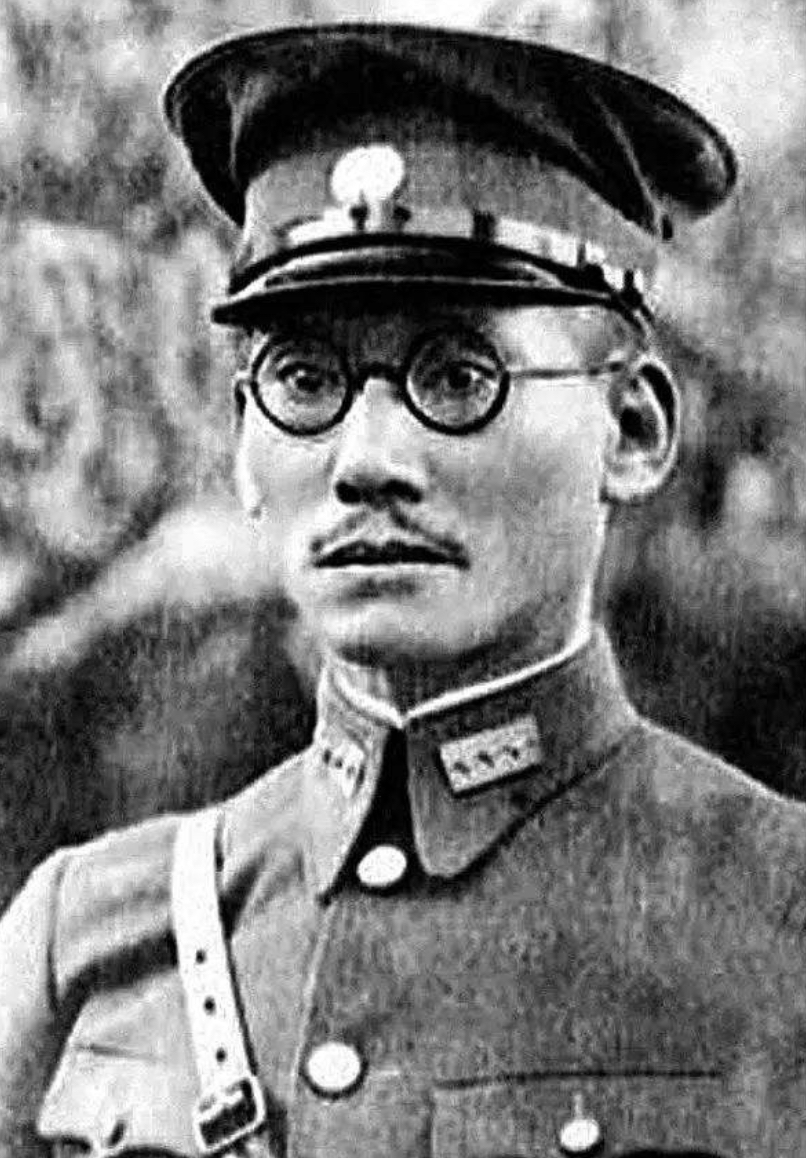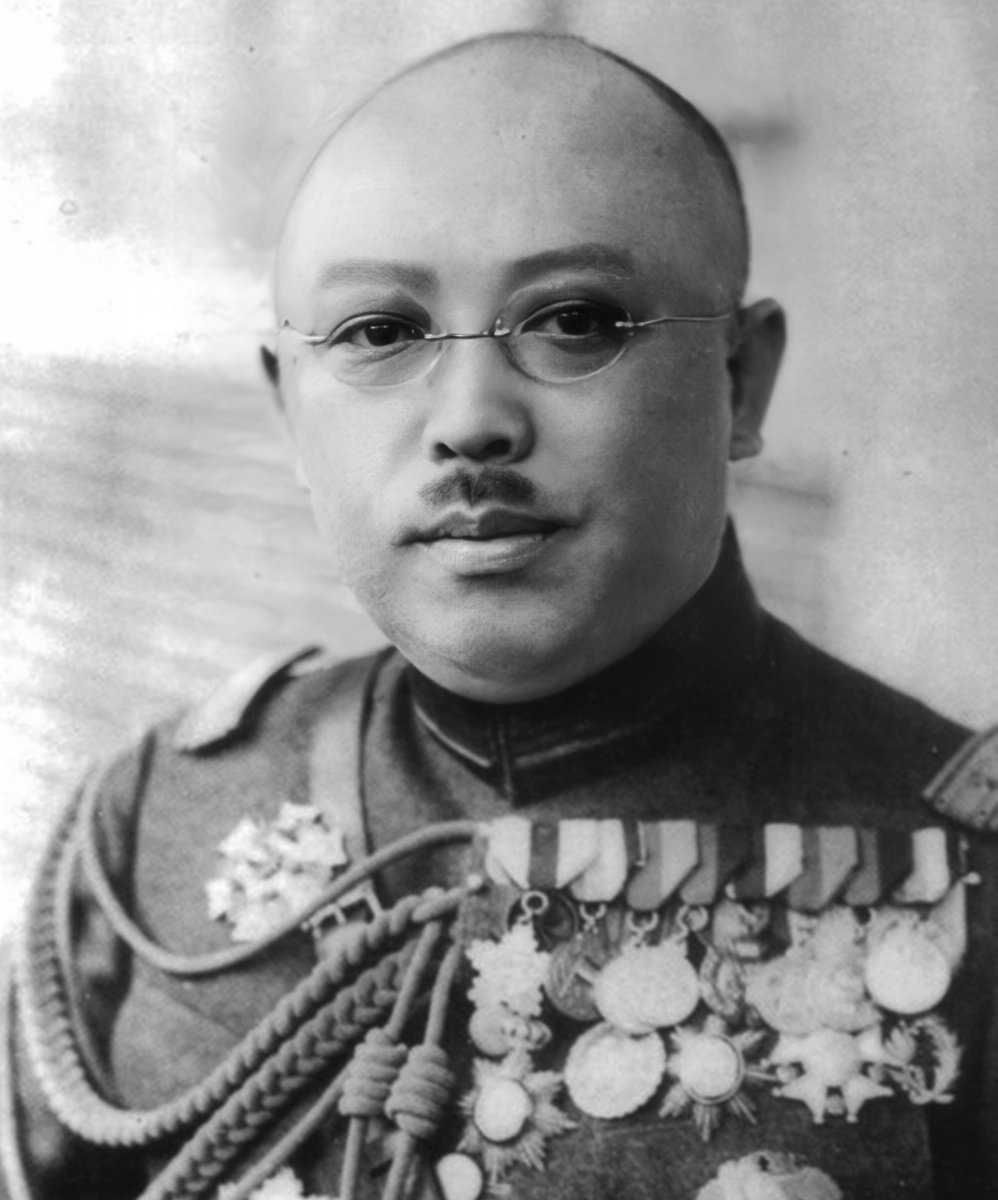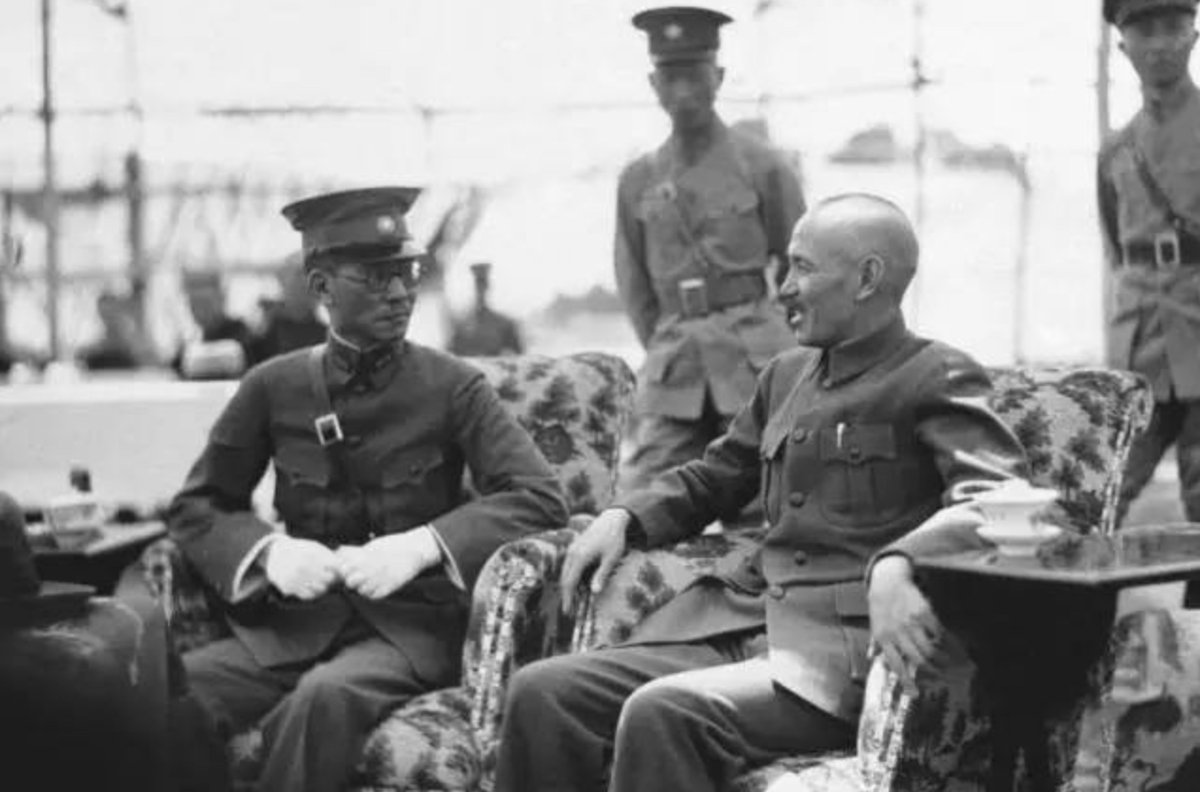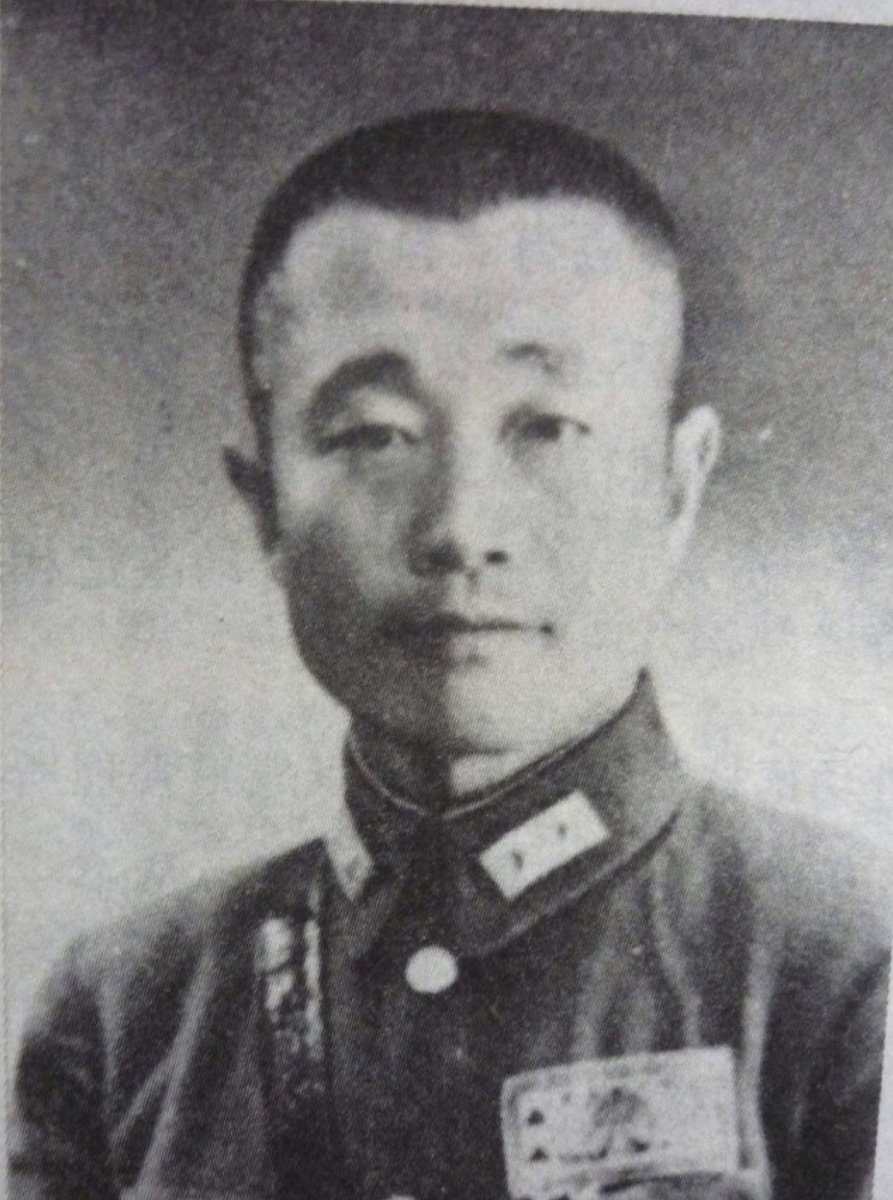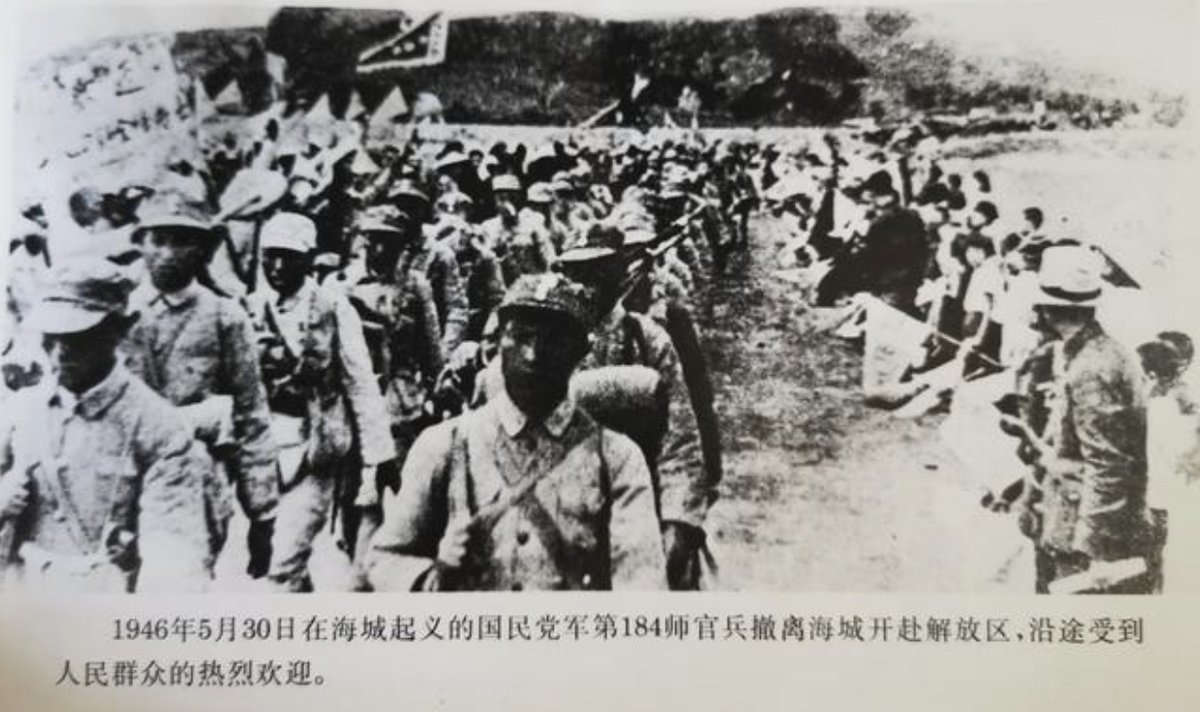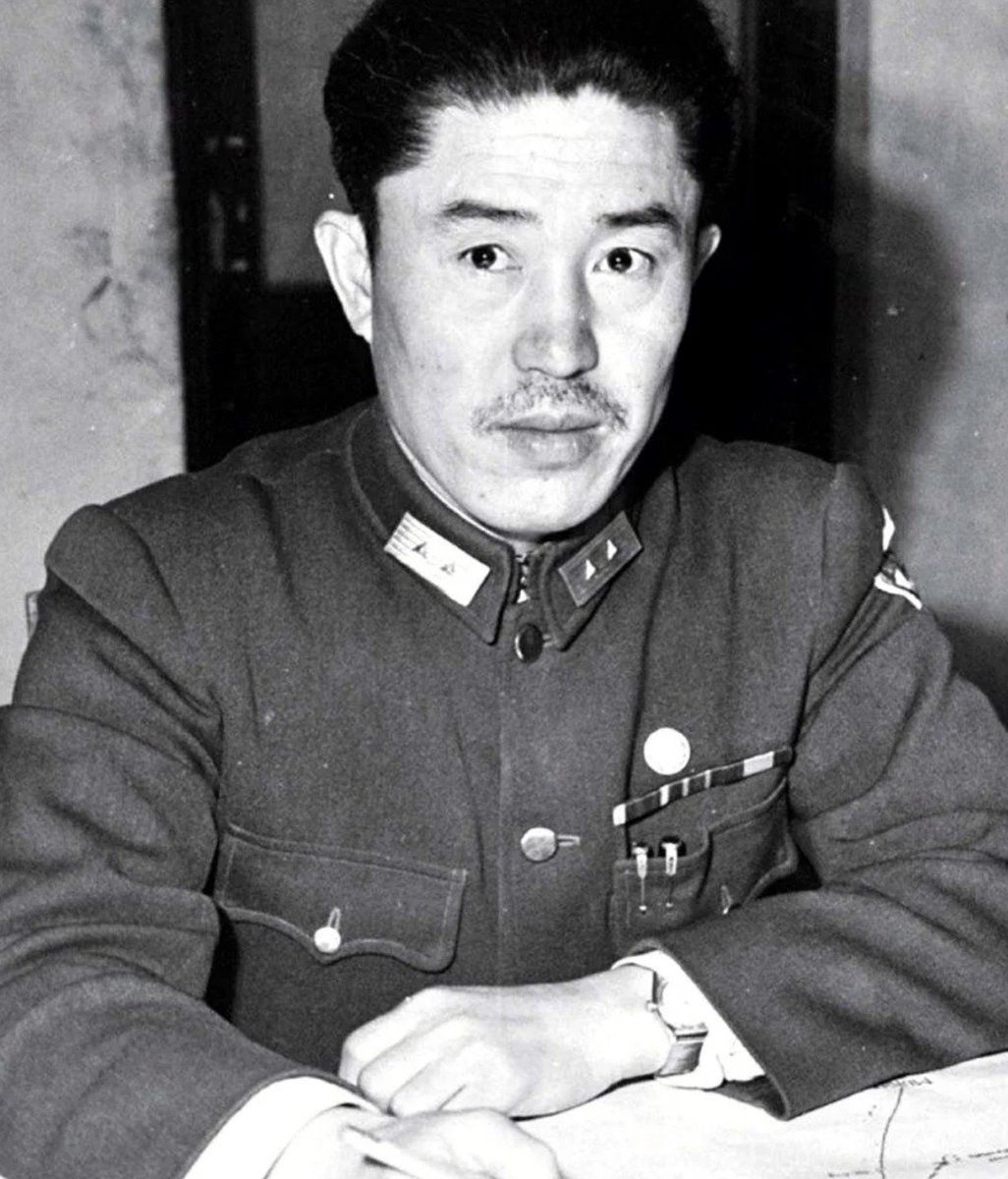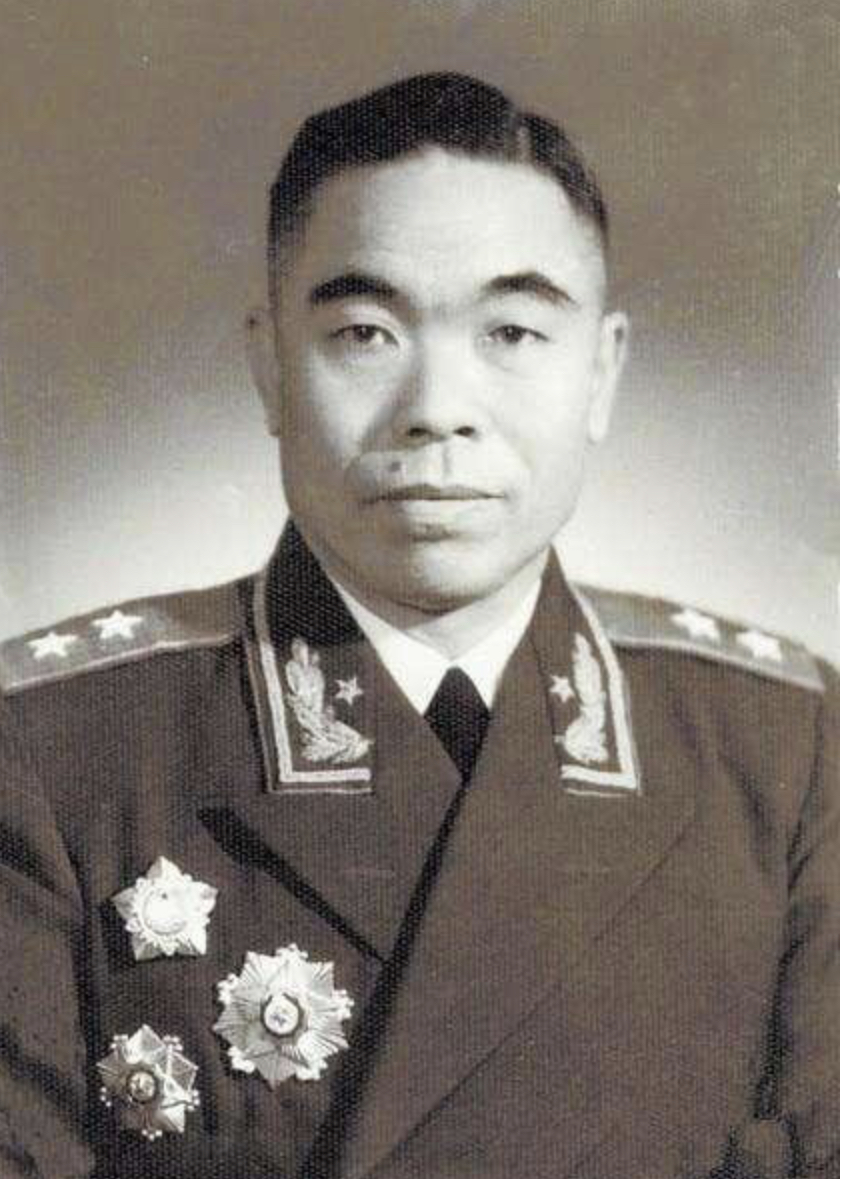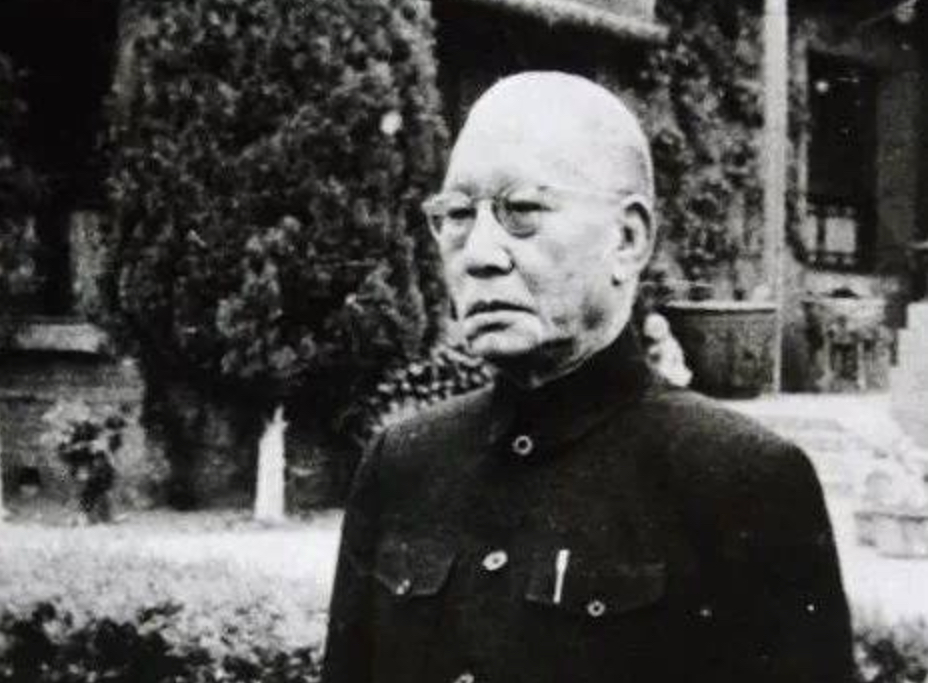A persistent theme of modern Chinese history is the constant tensional tug-of-war between tendency of provinces and regions pursuing local interests, versus authoritarian centralization.
Long Yun, reigning warlord and Governor of Yunnan Province, offers a cautionary tale. /1
Long Yun, reigning warlord and Governor of Yunnan Province, offers a cautionary tale. /1
Long Yun, born 1884, began his military career in the Dian Army, during the chaotic Warlord Era that immediately followed the collapse of the Qing Empire. The Dian Army of Yunnan Province, was one of numerous independent regional armies that arose in the Qing Empire in 1800s. /2
Long Yun rapidly ascended through ranks of Dian Army under his boss Tang Jiyao (pictured), head of the Army and Governor of Yunnan Province, who he then overthrew and succeeded in those same roles in 1927 in a coup. For next 18 years, Long Yun became the “King of Yunnan”. /3
While Long Yun nominally pledged allegiance to Chiang Kai-shek’s (pictured together) central Republic of China (ROC) government and its National Revolutionary Army (NRA), particularly during 2nd Sino-Japanese War, in practice he ran Yunnan Province as his independent fiefdom. /4
After surrender of Imperial Japan and end of 2nd Sino-Japanese War, Chiang Kai-shek worked to clean-up and consolidate central political and military control of China. Resumption of Civil War with communists was only one aspect that. Squashing regional warlords was another. /5
Chiang Kai-shek’s forces, headed by trusted General Du Yuming, overthrew Long Yun from position as Governor of Yunnan and head of Dian Army in a violent, coup-style assault in October 1945. Long Yun was forced into de facto house arrest, and escaped to Hong Kong in 1948. /6
Importantly—with their boss Long Yun gone, what happened to his private army, Dian Army?
As with other private armies of regional warlords Chiang Kai-shek squashed and arrested over the years (see example below), they were absorbed into the central NRA. /7 https://twitter.com/simonbchen/status/1214811358903930881?s=20">https://twitter.com/simonbche...
As with other private armies of regional warlords Chiang Kai-shek squashed and arrested over the years (see example below), they were absorbed into the central NRA. /7 https://twitter.com/simonbchen/status/1214811358903930881?s=20">https://twitter.com/simonbche...
Dian Army was deployed as far away from Yunnan Province as possible, to brewing war theater and freezing hinterlands of Manchuria—geographically located diametrically opposite from Yunnan—where communist insurgency was steadily menacing NRA (Republic of China Army, ROCA). /8
In Manchuria, the Dian Army was heartlessly thrown into the most brutal combat conditions against the communists. Of course, all these moves were calculated by Chiang Kai-shek and his loyal generals in ROCA, many of whom graduated from his Huangpu (Whampoa) Military Academy. /9
By moving Dian Army as far away from Yunnan Province as possible, they were prevented from launching counter-coup to put an ally of Long Yun into power. By bloodily grinding down Dian Army in ceaseless combat, any hope of Long Yun of restoration of power was to be ruined. /10
The Dian Army recognized that they were condemned to a ruinous future by their own military, and few officers were content with status quo. In 1946, in Haicheng Uprising, 184th Division of Dian Army defected to communists, one of 1st major defections from ROCA in Civil War. /11
The adverse bullying that the Dian Army had faced came to a head, in the Siege of Changchun in 1948, the most horrific humanitarian disaster of the Chinese Civil War, in which 100,000+ civilians died in a deliberate campaign of starvation through siege enacted by communists. /12
The 60th Army of the Dian Army was deployed to defend Changchun alongside New 7th Army, which was a central ROCA unit directly loyal to Chiang Kai-shek. As the Siege of Changchun descended into desperate starvation, a massive aerial resupply effort attempted to feed them. /13
Rules were written and enforced that explicitly discriminated against 60th Army (60A) in favor of the New 7th Army (N7A) in distribution of airdropped food and supplies. N7A would confiscate all airdrops, and then distribute remaining scraps to 60A after it had 1st dibs. /14
The obvious bullying compounded upon starvation that was physically ravaging the 60A. Despite its historical reputation as a well-disciplined unit that faithfully served the military to which it belonged despite the obvious discrimination, discontent this time boiled over. /15
After relentless goading, propaganda, and psychological manipulation by communist army and Underground Party operatives, General Zeng Zesheng (in postwar communist uniform on right), commander of 60A, defected to communists and turned against N7A, forcing latter to surrender. /16

 Read on Twitter
Read on Twitter